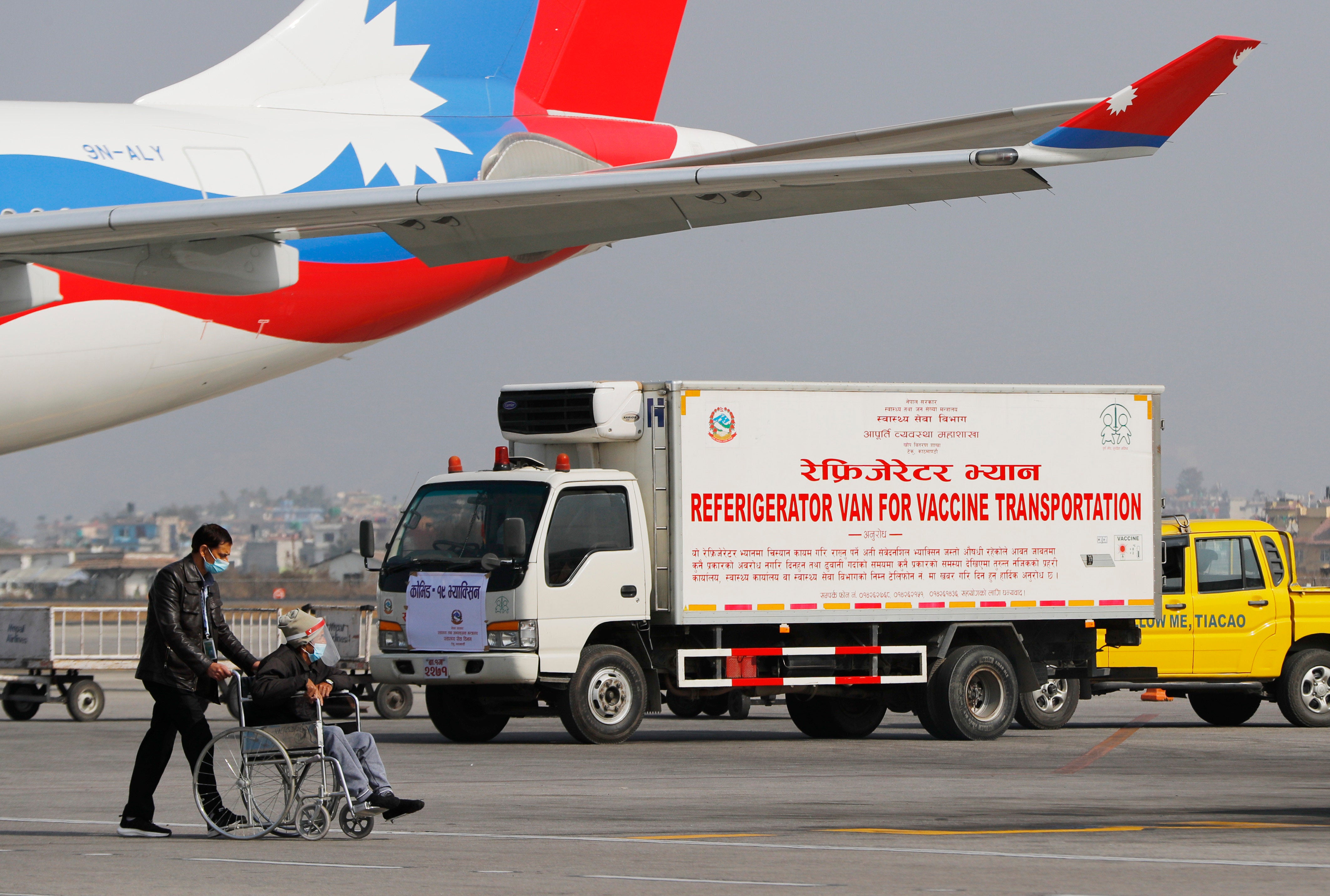Nepal worried about future supply of COVID-19 vaccines
Nepal has had a successful start of its COVID-19 vaccination campaign, but authorities are worried about future supplies as the country competes with other nations for much-sought vaccines produced by a handful of manufacturers

Your support helps us to tell the story
From reproductive rights to climate change to Big Tech, The Independent is on the ground when the story is developing. Whether it's investigating the financials of Elon Musk's pro-Trump PAC or producing our latest documentary, 'The A Word', which shines a light on the American women fighting for reproductive rights, we know how important it is to parse out the facts from the messaging.
At such a critical moment in US history, we need reporters on the ground. Your donation allows us to keep sending journalists to speak to both sides of the story.
The Independent is trusted by Americans across the entire political spectrum. And unlike many other quality news outlets, we choose not to lock Americans out of our reporting and analysis with paywalls. We believe quality journalism should be available to everyone, paid for by those who can afford it.
Your support makes all the difference.Nepal has had a successful start of its COVID-19 vaccination campaign, but authorities are worried about future supplies as the country competes with dozens of other nations for much-sought vaccines produced by a handful of manufacturers.
The government is negotiating with India’s Serum Institute to obtain 5 million doses for the second stage of the campaign, in which 3.7 million elderly people are to be inoculated starting this weekend, Health Minister Hridayesh Tripathi said Monday.
Nepal received a gift from the Indian government in January of 1 million doses of the AstraZeneca-Oxford University vaccine manufactured under license by India's Serum Institute. Nepal also purchased another 2 million doses from the company at a subsidized rate with the help of the Indian government.
“There is huge worldwide demand for vaccines from a handful of companies and we could be at the very end of the list,” Tripathi said. “So far, we have been able to get vaccines with both political and administrative help from India. However, I am very worried now.”
He said he is hopeful that Indian authorities will again help their small northern neighbor.
“We will not be able to get the vaccine through simple commercial deals with the company because we are competing with dozens of other countries, so we need the influence of the (Indian) government,” he said.
Nepal is also receiving a gift of 500,000 doses of a Chinese vaccine this month. Tripathi, however, said Nepal has not decided whether to purchase more of it.
“The AstraZenneca vaccine is the one preferred by the world and also approved and recommended by the World Health Organization,” he said.
Russia has also offered to provide 25 million doses of its Sputnik vaccine, but Nepal has asked for additional documents before it can start reviewing it, he said.
Nepal has also been promised 2.25 million vaccine doses under COVAX, the ambitious WHO program to buy and deliver coronavirus vaccines for the world’s poorest people, of which 300,000 doses are likely to arrive later this month.
Tripathi said the government is targeting the inoculation of the country’s entire adult population by September.
Nepal has reported 274,216 COVID-19 cases, including 2,777 deaths.
Health officials are worried that there could be a new wave of infections because of a series of political rallies by tens of thousand of demonstrators over Parliament's dissolution by President Khadga Prasad Oli last December and its restatement by the Supreme Court last month.